By Christina Ameln, CSR | Sustainability Advisor –
My first thought was that he was too young to be a managing director. But then, perhaps, maybe I am the one showing my age…
We call them millennials – people between x and z – and give them a range of attributes, not always the glowing kind. My comments sound alarmingly similar to what my parents might say about my generation. It seems to be a normal process of generational shifts. Those coming after me, however, are having to deal with a whole set of problems that I never imagined.
When it comes to their planet and home, these are students and young professionals eager to solve the sustainability problems plaguing the world that they will be left with. And they do not want to do it the same old way. On the contrary, they are seeking innovative ways to have an accelerated impact.
Studio: Innovation
I am having coffee with Quentin Frecon, Managing Director Vietnam, from innovation studio Schoolab to understand how they use cross-sectoral matchmakers and accelerators to promote sustainability and innovation. He is also trying to convince me to join them on their journey. Despite what seems to me to be a young age, I am taken in by his fantastic passion and interest to work with other people from all sectors and age groups (even 42 year olds like me). He is committed to lift up new thinking and find solutions.
Having found his creative thinking stifled in the traditional big corporate world, , Quentin moved to a multi-disciplinary team as a free-lance project manager under the Schoolab umbrella. He worked on an innovation program to support a big corporation to build and launch a new B2C (Business to Consumer) digital service: A Lean Factory. It went well. Having delivered five successful corporate projects, Schoolab trusted him to co-found an internal start-up which then sold in 3 months. Speed seems of the essence as he takes on a new challenge: penetrating the Vietnam market.
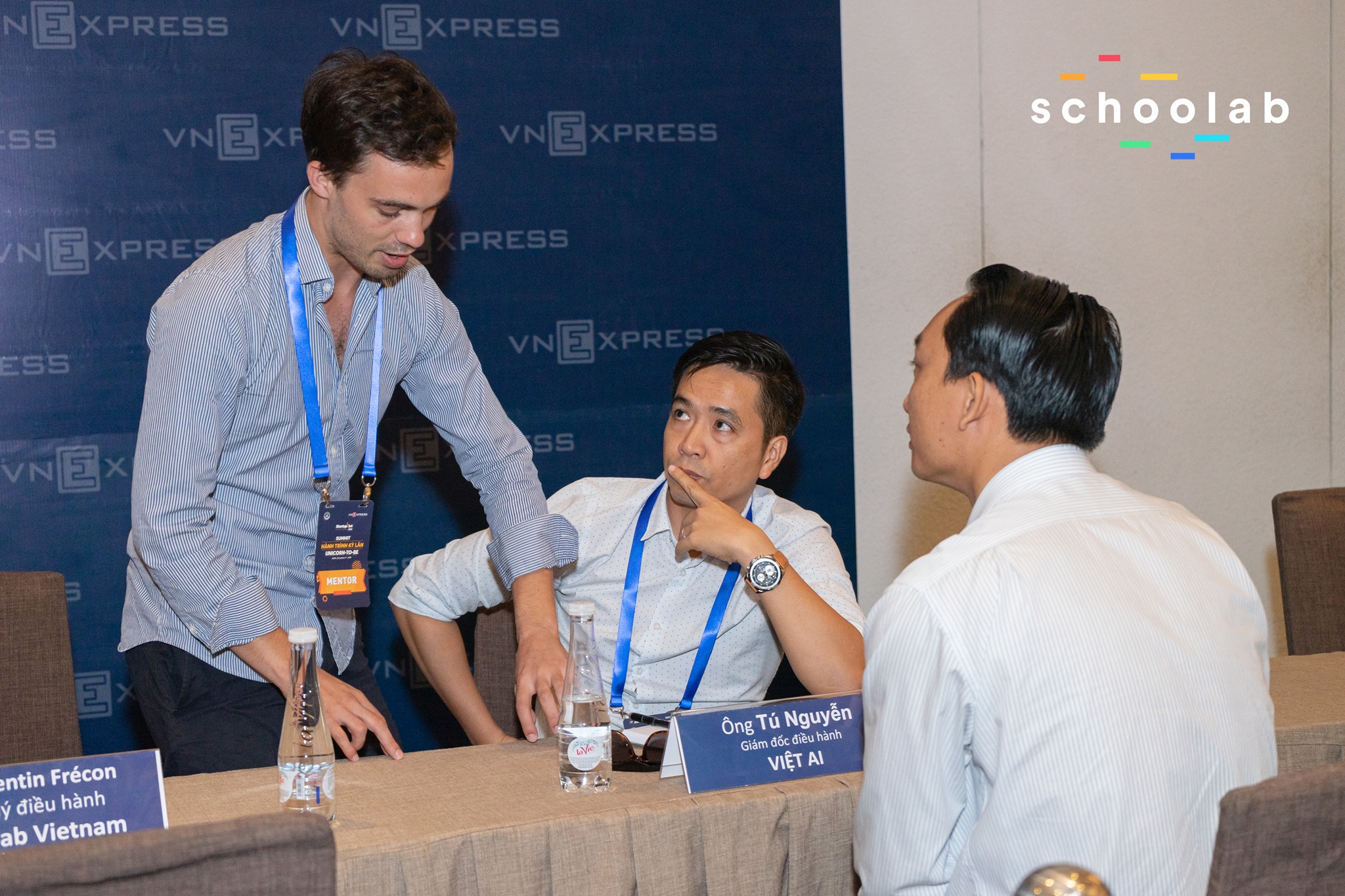
Quentin discussing innovation in Vietnam.
“When brainstorming with one of Schoolab’s partners coupled with a 3-month mission to understand the particularities of the market and the needs of local innovators, Vietnam appeared like the best destination. We were looking for an emerging economy where our skills and knowledge would add value to a growing start-up eco-system that could use support in building structure and champion early-stage entrepreneurs and corporate innovation. Complementing all these points was the country’s economic growth, a young population and fantastic culture. Having now been here for over a year, I can confirm that this Southeast Asian country has ticked all these boxes”, says Quentin .
Headquartered in Paris, France with an additional centre in California, USA in partnership with Berkeley University, Schoolab has worked for 14 years to build a unique ecosystem that supports transformation of organisations from start-ups to multinationals to accelerate innovation projects. They build, design and launch innovative concepts, new products and services and innovation labs for universities, corporates, public institutions etc. They have big names and small names under their belt from L’Oréal, Samsung, LaPoste and Heineken. The teams are built around the challenges set by the corporates and innovation is led by the ‘brains’ of students with guidance and hand-holding from Schoolab’s experts on Design Thinking and Lean Start-up. The aim is to provide a prototype either in the form of a service or product. All this is done at a pace that accelerates change and impact.
The Perfect Teams
The strength is in the teams Schoolab pulls together from students to corporates. Having experienced this mix of teams from different sectors and different generations himself, Quentin is a true believer in its power.
“It’s a perfect mix! Since 2005, we have seen with our partners in Europe the value of tackling a problem by mixing different angles and points of views. On one side, you have those coming from traditional business backgrounds with a focus on ROI, managing multiple projects or having longer decision-making processes. On the other side, I see young people being connected and aware of the latest technologies with the ability to be freer with crazy (and good) ideas, open to creativity”.
I concur with Quentin’s comments. I see strengths in all backgrounds and experiences and believe that we can all be creative (whatever our professional background and age). It is the can-do attitude that one brings to solutions that is the key to these types of teams. I have met younger professionals with a know-it-all attitude that is slightly off-putting but I have met others such as Quentin who bring me into their world with enthusiasm, professionalism and interest. What I find fascinating about this model is its ability to engage a range of people and groups that are interested in impact and its commitment to engaging youth in issues close to their hearts.
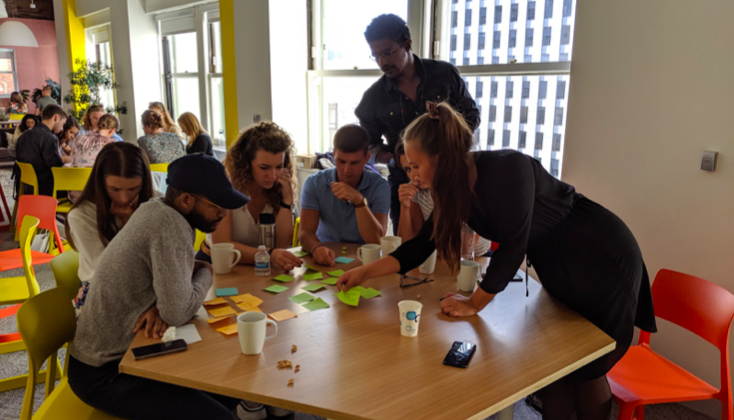
LeBridge program: Entrepreneur program in partnership with UC Berkeley
Quentin adds that “The diversity in a project team, combined with a well-structured methodology and experienced experts to coach and facilitate teams, enables the creation of disruptive out- of- the- box concepts. And what else is on offer? A great opportunity to interact with a pool of well-trained future employees”.
In Vietnam, Schoolab is taking its key learnings to implement innovation and sustainability and build the ‘perfect mix’ with a focus on plastics.
De-Plastifying the Planet
In the recent Ethical Corporation article on “In Asia, Sustainability Leadership in the 2020s Must Start with Rethinking Waste”, author Pat Dywer writes that “Solid waste, in particular single-use plastic, has become the poster child issue that most countries in the Association of Southeast Asian Nations (ASEAN) rallied against in 2019. This is expected, when ASEAN member states make up six of the top 20 countries ranked by size of mismanaged plastic waste according to one 2015 study. Most of the resulting plastic pollution ends up in the ocean… In this new decade, we need to shift our efforts around efficient production systems and redefining consumption habits. …Companies can join up thinking and start taking action at any stage of design and production, consumption, collection and disposal or closing the loop”.
And Schoolab is looking to guide this service and product innovation in Vietnam among all sectors. Not only because Vietnam was named top five countries responsible for 80% of the plastic waste pollution in the ocean but also because Schoolab is convinced that it wants to take on this challenge. In August last year, Schoolab organized the Hanoi Innovation Summit and Quentin says, “We identified a big interest from public and private actors but also from students willing to tackle this huge problem”.
Why Schoolab?
But why Schoolab? While leading in other markets, the words sustainability and innovation are only just gaining momentum as key words in Vietnam and Schoolab is one of many jumping on this bandwagon. For example, I talked about this recently at the Swedish Embassy Hanoi event on In the Spirt of Nobel, where it gathered Vietnamese students around the ‘Innovate Like a Swede’ concept.
Quentin is happy to answer this question. He explains that leveraging teams for innovation is what they do and have done from the beginning: “Schoolab has developed a unique approach and method to bring together different populations, from students, start-ups and corporates, to work, develop and solve innovative concepts from services to products on a multi-industrial approach”.
For example, in 2007, McDonald’s in France was facing the issue of an increasing volume of waste on public streets generated by its take-away business. McDonald’s asked Schoolab’s Open Innovation Program team to invent a new concept to pack take-away products. The result was a crosspiece conceived, prototyped and tested by the team of students that was produced and used in over 1000 restaurants in France.
As of today, it is actually used by over 1 million customers per day. In comparable terms, Quentin quotes, “The crosspiece has enabled savings in paper tonnage equivalent to the weight of 3 Airbus A380 airplanes in 2 years”.
And if we need more numbers, he adds: “What makes us unique in Vietnam is the years of experience we bring with us: +300 project accelerated, +450 start-ups incubated and +4,000 alumni around the world trained on Schoolab’s method. Finally, our ability to connect all these dots together”.
Think Big, Start Small
And yes, plastic seems like an insurmountable issue but one of the mottos of Schoolab is: “Think big, start small!” So, these teams might start small but, as Quentin underlines: “My wish is to enable local entrepreneurs to expand globally thanks to our network and to build bridges between Europe, USA and Asia bringing together global innovators”.
And that is why we should engage with students and young professionals. We should combine our experience with their open, accelerated, solutions-oriented and passionate mindsets. They are the ones who will live with the consequences; they have the most to lose if there are no solutions. With our knowledge and their urgency, great things can happen.
We need diverse mindsets to tackle formidable challenges. And no matter Quentin’s age or mine: I want to be part of the effort to speed up sustainability and innovation.
How about you?
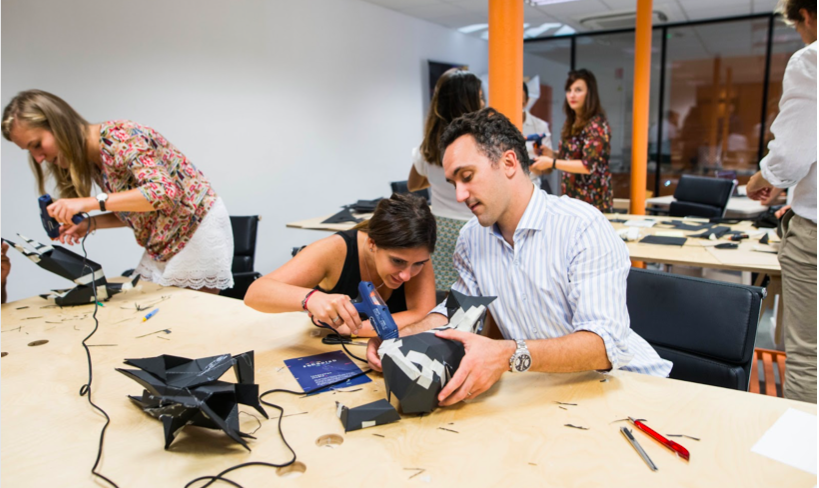
Student and corporate program: Prototyping phase.
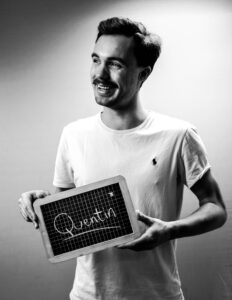 About:
About:
Quentin Frecon, Managing Director, Schoolab Vietnam
About Schoolab:
Schoolab is an innovation studio based in Paris, San Francisco and Ho Chi Minh. We create unique spaces where we mix corporations, startups, students and experts to generate unique value for our clients.
The adventure of Schoolab began at Stanford in 2007. Enrolled in an MBA program, Jean-Claude Charlet, CEO and co-founder of Schoolab, watched the rise of Design Thinking methodology and witnessed the new managerial and organizational methods being implemented across Silicon Valley.
Profoundly affected by his experience and convinced of the power of an active and vibrant ecosystem, he returned to Paris determined, with two serial entrepreneurs, Julien Fayet and Olivier Cotinat, to create Schoolab with the goal of bringing these new methodologies and collaborative ways of working to France
Surrounded by a team of young innovators from different backgrounds — design, business, technology, ethnology, journalism… they created the CPi program (Création d’un Produit Innovant) in 2007. The CPi program aims to put students from all walks of life in position to work together on real projects of active companies. A pioneer of multidisciplinary student programs, CPi innumerably increases the students’ capacity for innovation and immerses them directly from education in real conditions, working on real issues facing companies today.
Website: https://theschoolab.com/en/


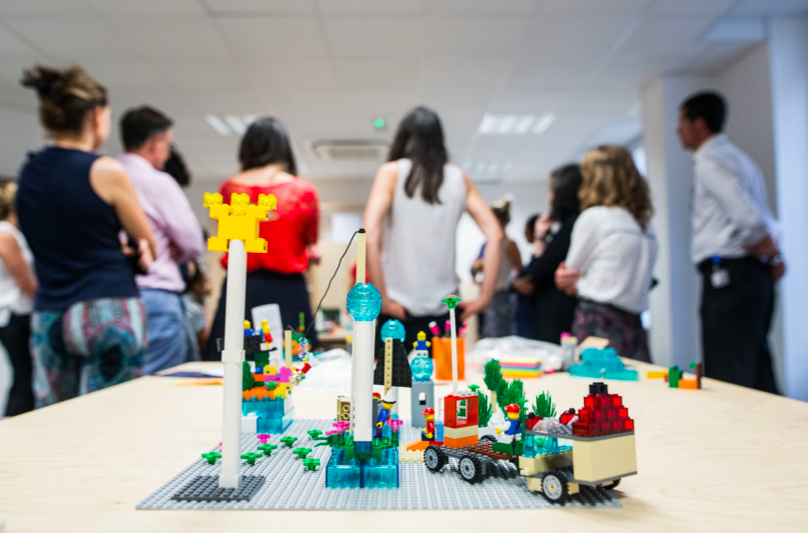
1 comment
Great content! Super high-quality! Keep it up! 🙂